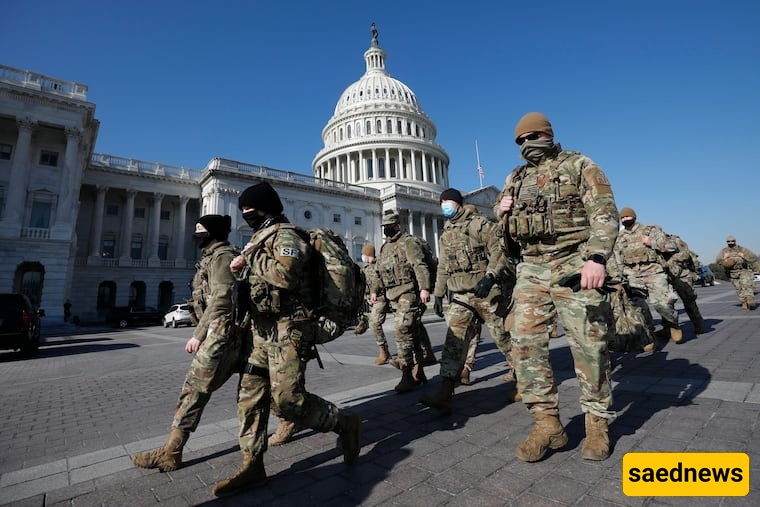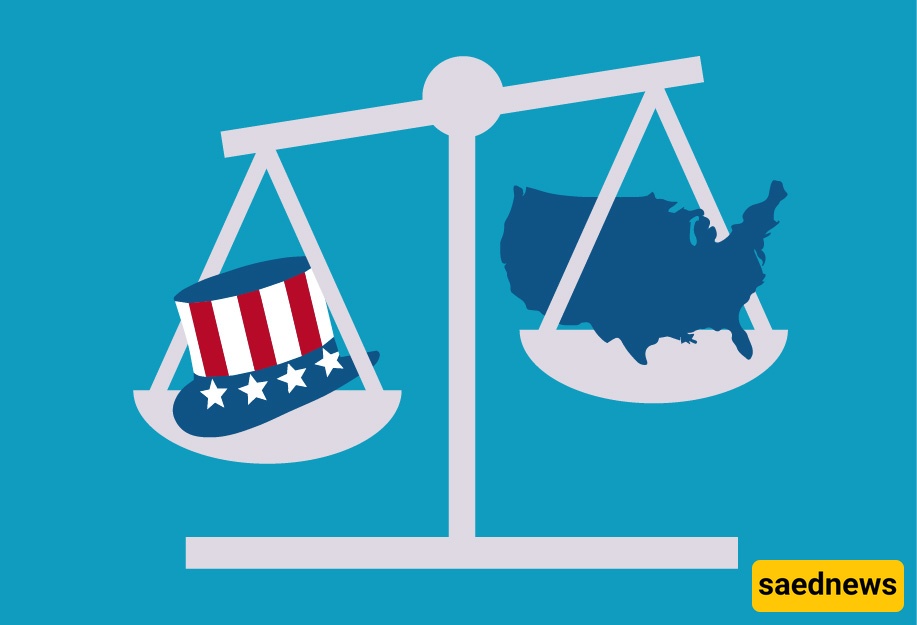SAEDNEWS: As tensions escalate in Washington, three Republican-led states will send hundreds of National Guard troops to the capital amid federal moves to tighten control over local police.

According to Saed News, citing CNN, in the United States, the issue of power-sharing between the federal government and the states has always been one of the most fundamental legal and political debates. Whenever security or social crises emerge, this conflict reaches a new level. The recent decision by three Republican states to send National Guard troops to Washington, at a time when the White House seeks to increase direct control over the capital’s police, represents a clear example of this historical dispute.

Recent developments in Washington, especially the rising tensions between the federal government and local institutions, have provided the main backdrop for Republican states’ entry into the security arena. Officials in these states have stated that the deployment of troops is aimed at “maintaining order and supporting democracy,” but critics view it as a political move in opposition to the White House.
The National Guard in the U.S. has a dual structure: it answers both to state leadership and can also serve the federal government by presidential order. This duality has raised serious questions about the ultimate goal and the level of coordination between the states and the White House in the current troop deployment to Washington.
The federal government’s move to intensify oversight of police forces in the capital is seen by many analysts as a sign of the White House’s desire to centralize more security power. This approach could reduce the institutional independence of local police and is likely to face resistance from Republican factions that emphasize state autonomy.
Democrats consider the National Guard deployment by Republican states as a showy move and an attempt to politicize public security. In contrast, Republicans argue that the White House’s policies have effectively endangered citizens’ safety, increasing the need for state intervention. Mainstream media have interpreted these developments as an indication of a deepening political divide in the country.
One important dimension of this issue is its legal implications for the U.S. federal system. Do states have the right to independently deploy National Guard troops for missions in the capital? And can the White House, relying on its legal powers, limit or stop this process? Answers to these questions could profoundly affect the future of federal-state relations.
The presence of National Guard troops on Washington streets can send two contradictory messages to the public: on one hand, it signals power and readiness to maintain order; on the other, it warns of increasing militarization of urban spaces and restrictions on civil liberties. This duality could lead to reduced public trust in governments.
Continued Deployment with Limited Cooperation: Deployed troops operate in coordination with local police, and the crisis is managed in a controlled manner.
Increased Federal-State Confrontation: Disputes between the White House and Republican states intensify, potentially leading to a broader political crisis.
Troop Withdrawal and Political Compromise: Public pressure and political costs may halt troop deployment, leading to a middle-ground solution for controlling the capital’s security.
The deployment of the National Guard to Washington, while the federal government seeks greater centralization of security power, clearly shows that the gap between the states and the White House remains deep. This event could become a turning point in American federalism history, where the debate over the boundaries of central and state authority returns once again to the forefront of U.S. domestic politics.

